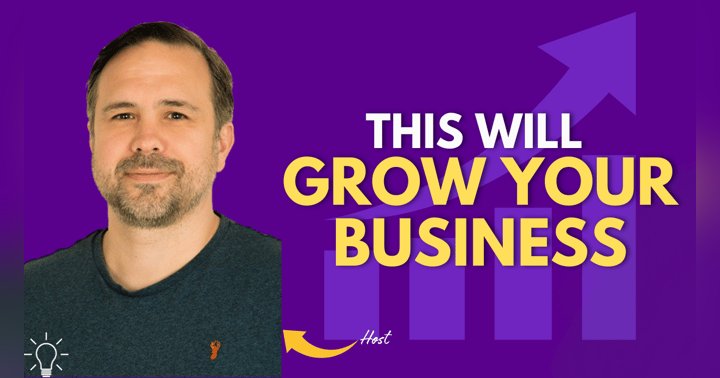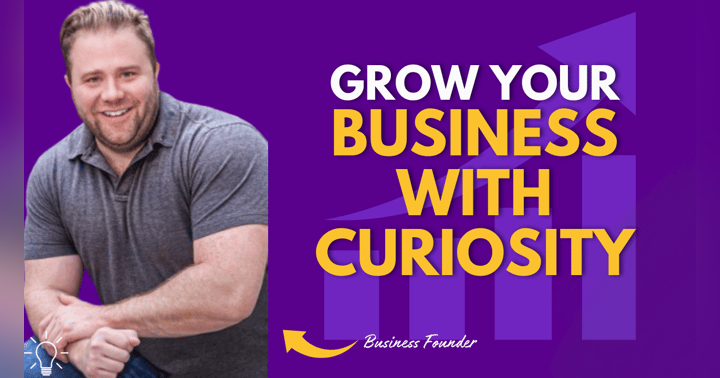Embracing Neurodiversity: Unlocking Business Superpowers with Katerine McCord

How Universal Design and Inclusion Can Propel Business Growth
Key Takeaways
-
Shift to Universal Workplace Design: Adapting universal design principles can create an inclusive environment where every employee thrives, boosting productivity and innovation.
-
Effective Communication: Improving communication by understanding different neurodiversities and inclinations can significantly enhance team performance and workplace harmony.
-
Strategic Onboarding: A well-structured onboarding process can increase employee retention and foster long-term commitment and satisfaction.
Redefining Business Mindset for Mission-Driven Growth
A key element highlighted in the discussion with Katherine McCord is the essence of having a robust business mindset centered around clarity of mission, integrity, and innovation. Katherine explains, "To me, a business mindset is that you need to be focused on what you're giving to your client base and you also need to have a mindset for growth and innovation." The primary mission acts as the guiding star that helps firms navigate through various challenges and changes, allowing flexibility in methods while ensuring the ultimate goal remains unchanged.
Universal workplace design—designing processes and environments that work for everyone—emerges as a mission that aligns well with these principles. Katherine sheds light on this by saying, "Titan Management is not your normal, typical HR firm. It's a powerhouse that builds fully inclusive, non-linear, and sustainable people operations programs that deliver tangible results."
By emphasizing mission-focused decisions and allowing flexibility in achieving these missions, businesses can innovate better and ensure all-around growth. Equally, focusing on inclusivity and integrity can ensure that the growth is sustainable and ethically grounded, making it a win-win strategy.
The Power of Inclusion: Extending Beyond Marginalized Groups
While the term 'inclusivity' often invokes thoughts of marginalized groups, Titan Management expands this definition to envelop everyone within a company's ecosystem. "People often misinterpret inclusivity as exclusive to marginalized groups," Katherine asserts. However, genuine inclusion is about supporting everyone, irrespective of their background, and ensuring they have the tools and opportunities to succeed.
This broader definition is pivotal in breaking down stereotypes and misunderstandings. Katherine elaborates, "Inclusion can only truly function when everyone is thought of and considered and honored." It's about ensuring that everyone—regardless of race, gender, age, or other identifiers—feels valued and included. She shares, "We start by teaching the difference between inclusion and infliction. Inclusion is that everyone should be allowed to practice their own religion as they so choose, as long as it does not disrupt workflow."
This approach directly impacts business outcomes. By fostering an inclusive environment, companies can leverage diverse perspectives and skills, fostering innovation and creativity. Studies, such as those from Hewlett Packard mentioned in the transcript, show that inclusive teams are 33% more productive and significantly healthier and happier. This inclusivity directly correlates to higher customer satisfaction and profitability, making it a tangible business advantage.
Revamping Hiring Processes and Onboarding Procedures for Success
An integral part of creating an inclusive workplace lies in revamping traditional hiring and onboarding processes to better align with inclusive practices. Katherine recounts a case where she overhauled an inefficient onboarding system, highlighting that many companies have redundant questions and frustrating experiences for candidates.
Addressing such inefficiencies can have a drastic positive impact. Katherine describes, "We started collecting the hire documents ahead of time. We sent a questionnaire about how do you best learn, how are you best communicated with, and are there any needs that you would like?" These steps ensured that employees felt welcomed and valued right from the start, significantly increasing employee retention and engagement.
Moreover, proper onboarding ensures employees are integrated smoothly into their roles, leading to immediate productivity and long-term satisfaction. Katherine points out, "Over 80% of cases, if you give a poor onboarding experience, the candidate never stops looking for a job." Thus, robust onboarding is not just a good practice; it’s essential for retaining talent in the competitive business landscape.
Katherine McCord's insights from her interview on Business Growth Talks emphasize a progressive and comprehensive approach towards business operations. Implementing universal design and fostering an environment of inclusivity are not just ethical imperatives—they are strategic advantages. By focusing on universal workplace design, effective communication, and strategic onboarding, businesses can pave the way for enhanced employee satisfaction and better overall performance. This methodology ensures that as businesses grow, all employees, regardless of their backgrounds and abilities, grow alongside them, creating a thriving and resilient business ecosystem.






